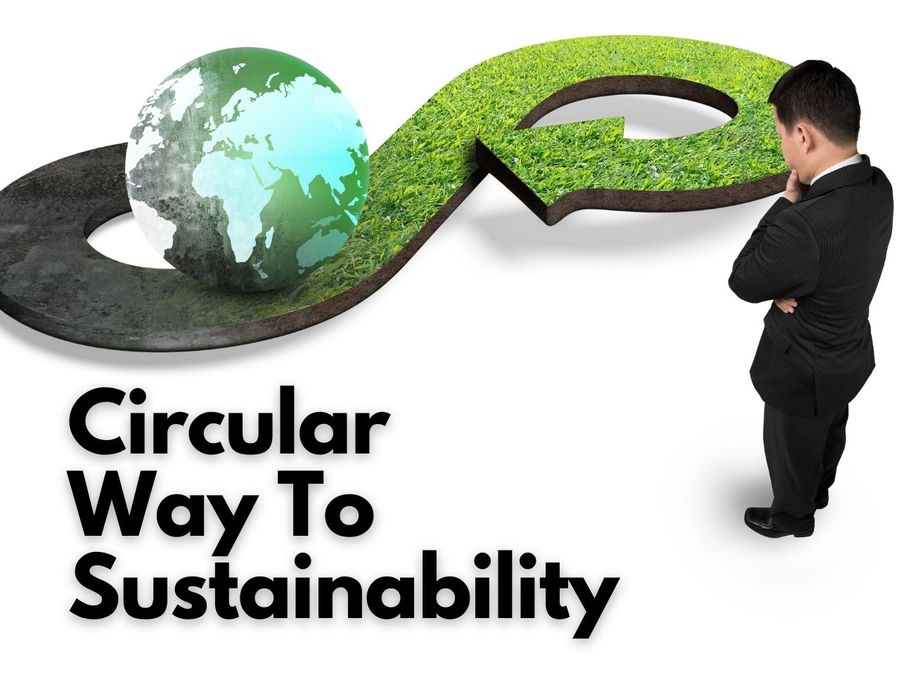
Sustainable Consumerism: The Rise of Circular Economy Startups
Share
In recent years, the world has witnessed a growing awareness of the environmental and social impact of traditional consumption patterns. This shift has paved the way for sustainable consumerism, a movement advocating for responsible purchasing behaviors that prioritize environmental and ethical considerations. At the heart of this transformation is the rise of circular economy startups, which are playing a pivotal role in reshaping how we produce, consume, and dispose of goods.
What is a Circular Economy?
A circular economy is a regenerative system that minimizes waste by keeping products, materials, and resources in use for as long as possible. Unlike the traditional linear economy—where products are made, used, and discarded—circular economy models aim to "close the loop" by designing products that can be reused, refurbished, or recycled. This approach fosters sustainability by reducing the environmental burden associated with resource extraction, manufacturing, and waste disposal. It also challenges consumers to rethink the lifespan of the items they purchase and embrace new ownership models such as renting, sharing, and second-hand consumption.

The Rise of Circular Economy Startups
Circular economy startups are emerging as key players in advancing sustainable consumerism. These innovative companies leverage technology and business models that emphasize resource efficiency, waste reduction, and product lifecycle extension.
One of the defining characteristics of circular economy startups is their emphasis on the Product-as-a-Service model. Rather than owning a product outright, consumers can now rent or lease items for a specific period. This approach is particularly popular in industries like fashion and electronics, where companies such as Rent the Runway and Fairphone have gained traction. By offering products as a service, these startups reduce the need for constant production of new items, encouraging the reuse of existing ones. As a result, fewer resources are consumed, and waste generation is minimized.
Circular startups are also finding innovative ways to give new life to old products. For example, companies like TerraCycle specialize in turning waste that is traditionally non-recyclable into new, usable materials. Similarly, The Renewal Workshop partners with apparel brands to restore damaged or unsellable items, transforming them into high-quality, renewed products. By embracing upcycling and recycling, these startups tackle the issue of waste head-on while creating new market opportunities for both businesses and consumers.
The sharing economy, often intertwined with circular principles, promotes the idea of shared ownership and collective consumption. Startups such as Vinted and ThredUp enable consumers to buy and sell pre-owned fashion, while Fat Llama offers a platform for renting everyday items like cameras, bikes, and tools. These platforms encourage consumers to shift away from buying new products toward sharing and reusing items, ultimately reducing overconsumption and waste generation.
Another vital aspect of the circular economy is extending the lifespan of products through repair and refurbishment. Startups like iFixit and Back Market specialize in providing tools, parts, and guidance for consumers to repair their electronics, offering an alternative to the costly and wasteful practice of buying new devices when old ones break. These services not only reduce electronic waste but also empower consumers to take a more active role in maintaining and preserving the items they own.
The Benefits of Circular Startups for Consumers and the Environment
The rise of circular economy startups offers numerous advantages for both consumers and the environment. Circular startups help reduce the volume of waste sent to landfills by encouraging the reuse, recycling, and repurposing of products. By keeping products in use longer and reducing the demand for new raw materials, circular business models lower the environmental impact of resource extraction. Consumers can also save money by opting for second-hand or refurbished products or by renting rather than purchasing new items. Additionally, circular economy startups often promote sustainability education, encouraging consumers to think critically about their purchasing habits and the lifecycle of the products they use.

Challenges and the Path Forward
While circular economy startups are driving positive change, they also face several challenges. Scaling operations to meet growing consumer demand, addressing regulatory hurdles, and navigating the complexities of product repair and recycling are ongoing obstacles. Additionally, shifting consumer mindsets from ownership to sharing or renting will require continued education and awareness.
Nevertheless, the potential for circular economy startups to reshape global consumption patterns is immense. As consumers increasingly prioritize sustainability, these startups are well-positioned to lead the charge toward a more environmentally responsible future.
As the movement continues to grow, the future of consumerism looks brighter—one that prioritizes sustainability, innovation, and shared responsibility for the planet.



